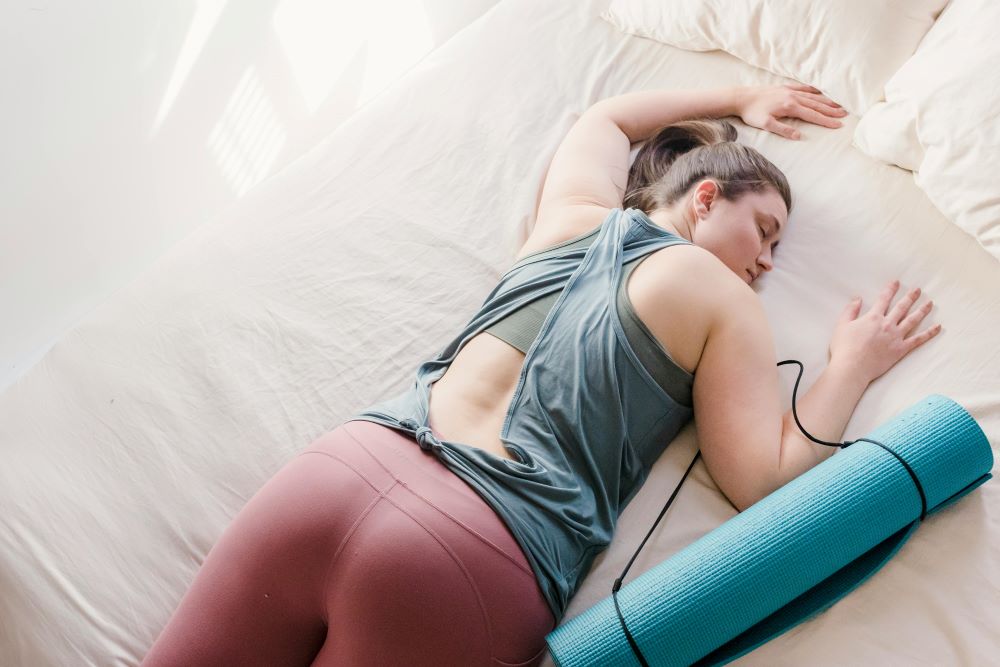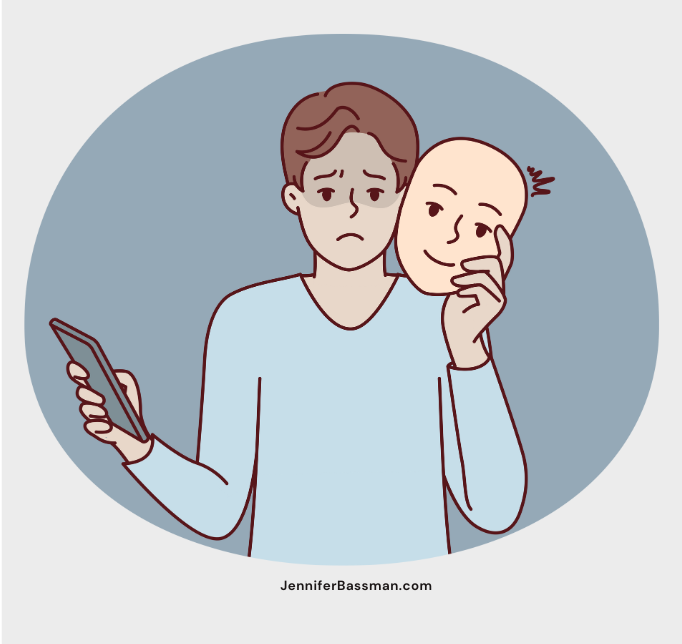Not to be a know-it-all smart-ass, but I knew this day was coming: self-care burnout. (Also called wellbeing burnout.)
(Ahem. See my blog post from 2022: The Era of Self-Care Is Over.)
There has been undeniable pressure for people to invest in self-care to improve their wellbeing and rid themselves of stress, anxiety, and burnout.
Social media influencers stand before cameras in cute little yoga outfits swearing their regular yoga/piliates/meditation/chai tea routine “saved them” and is something you must try NOW if you want to find any kind of peace in your chaotic life.
They’ll even sprinkle in some spa-like videos that show eucalyptus plants hanging from their showerheads and candles aglow as their bathtub fills with bath-bomb infused water.
Ladies, who has time for all that shit?
Besides, as you watch, you know you hate yoga/pilates/meditation/chai tea and those freakin’ bath-bombs leave a residue that is a bitch to clean.
The Pressure to Be Well is Burning You Out
There is an unspoken pressure many of us feel to keep up with a certain type of self-care routine. (What I described above.) This pressure keeps us stuck in a cycle that makes us feel… less well. Basically, you’re cancelling out the benefits.
This is already coming at a time when we feel excessive pressure from so many other sources that self-care is meant to be refuge from.
According to a recent Lululemon’s 2024 Global Wellbeing Report, two in three people are feeling pressure from others and society to support their wellbeing in specific ways.
They say our self-care burnout is fueled by:
- Unrealistic societal expectations (Duh.): 61% of people said they experience overwhelming societal expectations to appear well.
- Conflicting information: 53% of people said there is too much conflicting information about ways to improve their wellbeing.
- Feeling like we are going at it alone: 89% of people said loneliness is contributing to their wellbeing burnout.
Solutions for Self-Care Burnout
The obvious answer to the pressure fueling self-care burnout (or wellbeing burnout) is to let go of whatever is causing you to feel it.
What we forget about wellness and wellbeing is that we need to enjoy it to benefit from it. If strenuous exercise makes you miserable, it’s likely causing pressure and stress that cancel out some of the benefits of working out. One the biggest signs this is happening: you dread doing it and look for ways to not do it or procrastinate starting.
The less obvious is the how. Here are a few ideas to solve your wellbeing burnout:
- Quiet your negative internal monologue: Tell that voice in your head that starts every sentence with “You should…” to hush. It’s become an obstacle to contend with, rather than a supportive confidence boost. Instead take your brain down a different path and think about what you enjoy doing most. Start ignoring the self-care pushers that advise you to do things that lead you to loathe yourself and cause those “You should…” thoughts to blossom.Instead: Look for ideas that spark your inner confidence and feel more like play or fun than work you have to do. For me, that turned out to be stretching throughout the day and taking my dogs for more walks. Did you know that wellbeing and exercise routines don’t have to be intense?
- Add more fun, play, and laughter: Fun, play, and laughter release feel good hormones like dopamine, endorphins and serotonin. These hormones signal your body that you’re happy, and in turn, you actually feel Laughter is literally the best antidote to stress because they instantly begin to decrease your heart rate and blood pressure – which causes you to feel more relaxed.Instead: Switch up your wellbeing focus by prioritizing more fun, play, and laughter throughout your day. For me, I look for activities that just sound like fun to begin with. I love to laugh and make others laugh so I send a lot of text messages throughout the day to friends and family with smart-ass remarks, funny videos, or relatable memes.
- Invite others to join you: I know that for some, their self-care time is hard-fought alone time. I agree, you do need some alone time, but you also need time with friends that make you feel supported and make you laugh. Human connection helps fight anxiety and depression, improves mental health, and increases self-esteem.Instead: Invite your friends to join you to try a new activity, volunteer in your community, or take a class on a topic that you’ve always wanted to learn more about. For me, I have made a big effort to include my friends in hobbies (or try theirs), meet for lunch during a workday, or volunteering my compassion fatigue knowledge and skills in my local animal welfare community.






